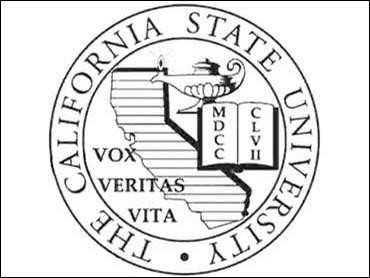
California State University Seal. (Photo: CSU.ca.org)
Payouts for Harassers, the CSU Way
‘The state and its systems are incapable of living up to the standards they preach from penthouses, while laughing in back rooms’
By John Maniaci, September 21, 2023 2:45 am
It is no secret that the California State University (CSU) system has struggled with accountability to state standards and regulatory oversight. But in a state that focuses so heavily on workplace conduct and promoting an inclusive environment for all people of all genders and backgrounds, surely the CSU system would lead the way in squashing sexual harassment and abuse. While student on student incidents remain prevalent, after the #metoo movement, an intense focus was made on faculty and staff involved incidents.
In 2014, the CSU system suffered a humiliating audit citing that the University System did not:
1) provide enough training to staff for reporting and handling of sexual harassment
2) first point of contact staff were not trained to handle reporting of such incidents
3) the university system did not always comply with laws on reporting cases, and
4) the need for system wide guidance and policy on the process for handling reports.
In the wake of the audit, the State Legislature set about passing legislation to force compliance with the findings of the audit, in the form of SB 967, signed into law in 2014.
So the CSU received its mandatory guidance both by law and through a federal case. Nine years later, the State Auditor circled back to check on the status of those findings, and the findings were staggering. The report published found the following in regards to sexual harassment accused against university employees:
1) Universities are closing cases arbitrarily without documented rationale
2) Universities were operating without necessary guidance, directly leading to a failure to investigate allegation of sexual harassment
3) nearly all investigations were not timely
4) Campuses failed to implement discipline despite findings
5) Universities were taking between four months to five years to carry out discipline, and
6) in many cases (unsure due to lack of documentation) the employee was given a stipend of $200,000 to leave the school with a letter of recommendation to another higher education institution.
The results of this audit were so shocking that the Legislature held a joint hearing between the Assembly Higher Education Committee and the Joint Legislative Audit Committee. The legislators immediately went about grandstanding and chewing the CSU Chancellor (who chose to participate remotely), while the State Auditor staff gave testimony and answered further questions on their findings. The responses from the CSU were at best finger pointing and at worst outright indifferent.
In the face of evidence and testimony, the CSU decided to hang its hat on three points:
1) Union bargaining ties our hands in discipline of employees
2) we need guidance on policy, and
3) we need more money to focus on this issue.
Three points that draw interesting conclusions; needing more guidance after federal cases and state law are given, and needing more money for a system that is failing to do the minimum.
The question remaining is simple, “when are we going to say enough is enough?” The state and its systems are incapable of living up to the standards they preach from penthouses, while laughing in back rooms. The California State University system is the trusted public university system of our state and the supposed model of higher education, yet it pays settlements to perpetrators for sexually harassing students and trashes the documents of the case and findings from accountability.
- ‘Trick or Treat’ in July! - July 3, 2024
- More Money, More Problems - May 24, 2024
- Payouts for Harassers, the CSU Way - September 21, 2023







